Adil Najam
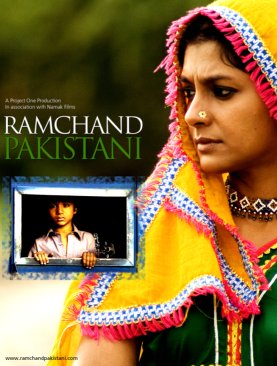 I have not yet seen the new Batman movie (The Dark Knight) that everyone is talking about, but the movie I would really really like to see right now is Mehreen Jabbar’s maiden feature film release, Ramchand Pakistani.
I have not yet seen the new Batman movie (The Dark Knight) that everyone is talking about, but the movie I would really really like to see right now is Mehreen Jabbar’s maiden feature film release, Ramchand Pakistani.
Of course, the fact that it is produced and written by Javed Jabbar, one of my favorite people and someone who has always shown me great kindness and encouragement, peaks my curiosity. But it very much a project of his daughter, Mehreen Jabbar, an acclaimed film-maker in her own right. But most of all I am dying to see Ramchand Pakistani because every review I have read of it and ever promo clip I have seen reminds me of what is now one of my all-time favorite movies, Khamosh Paani (Silent Waters).
I have been hearing wonderful things about it for the last couple of years while it was being made, and three people who did see it recently when it was screened in Pakistan have nothing but praise for the sensitivity with which a difficult subject has been tackled but also the visual and artistic content. It was recently released in Pakistan, but just after I had left.
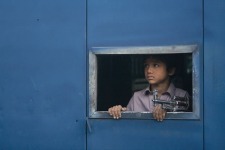
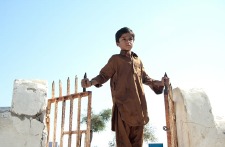
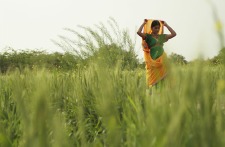
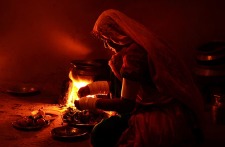
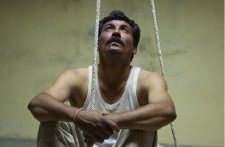
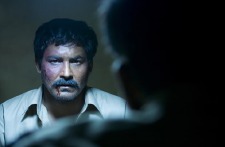
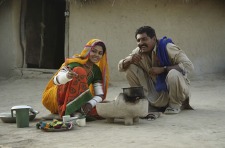
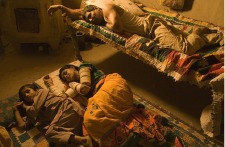
The film’s website describes the essentials of the story, thus:
Ramchand Pakistani is derived from a true story concerning the accidental crossing of the Pakistan-Indian border during a period (June 2002) of extreme, war-like tension between the two countries by two members of a Pakistani Hindu family belonging to the ‘untouchable’ (Dalit) caste, and the extraordinary consequences of this unintended action upon the lives of a woman, a man, and their son.
The singular theme of the film is how a child from Pakistan aged eight years learns to cope with the trauma of forced separation from his mother while being held prisoner, along with his father in the jail of a country i.e. India, which is hostile to his own, while on the other side of the border, the wife-mother, devastated by their sudden disappearance builds a new chapter of her life, by her solitary struggle for sheer survival.
The film portrays the lives of a family that is at the bottom of a discriminatory religious ladder and an insensitive social system, which is nevertheless tolerant, inclusive and pluralist. The irony is compounded by the fact that such a family becomes hostage to the acrimonious political relationship between two neighbor-states poised on the brink of war.
But the real power of the human story comes from something that was captured well in the film notes post at the Tribeca Film Festival site:
The most haunting frame of Ramchand Pakistani may be its first. Over a black screen, the words appear: adapted from actual events. The world is full of mad facts, but among the maddest is that in 2002, as Indian and Pakistani troops massed against each other on the countries’ border, an eight-year-old boy named Ramchand wandered over the invisible line separating his own side of the desert from that of India’s and was taken prisoner. Going in search of Ramchand, his father followed him across and was captured as well. They were held in an overcrowded Indian jail for five years.
The film is clearly Mehreen’s, but equally clearly the story has Javed Jabbar all over it. Of course the story idea and writing was his, but anyone who knows him and his passion (for film; he produced and directed Pakistan’s first full-length cinema film in English: “Beyond the Last Mountain,” 1976) and his lasting interest and in the Thar region can see that it is more thanjust genes that he has given his daughter. Reviews seem to rave about Mehreen Jabbar’s directorial talents and also about the cinematography of Sofian Khan. The songs from Shubha Mudgal and Shafqat Amanat Ali Khan are themselves making waves. Most of all, the reviewers seem to be totally charmed by the seven-and-half year old Syed Fazal Hussain who played the lead role of Ramchand Pakistani. As the Tribeca site puts it, “Syed Fazal Hussain proves one of those miracle discoveries – he’s a real kid, all piss and vinegar and shaking vulnerabilities-and Jabbar does well to dwell on his face as much as she does.” All of these are yet more reasons why I really really want to see the movie.
If you have already seen it, do let us know what you thought.
(Note, other ATP movie posts of interest: Jinnah-The Movie, Man Push Cart, Kala Pul, Kaanch, Khuda key Liye, Charlie Wilson’s War, Son of a Lion)




















































Yes, overall a good movie, after a long time
I have just returned from an Ahmedabad theatre that is screening “Ramchand Pakistani”. What an incredibly powerful film, so wonderfully assembled and performed. I have known and admired Javed Saheb for many years — I had no idea that he had such a marvelously talented daughter. I came home and tried unsuccesfully to call them to say how thrilled and privileged I feel to be able to see “Ramchand” here. It deserves the widest audience, not just in our countries but all over this planet so that one day the Ranchands of this world can walk free. In this city we must do what we can to ensure that its young people have access to this important film. I hope as well that many in Pakistan will have seen it, and good cinema can do whatpoliticians seldom can. And if Javed, Mehreen and the family see this, “Thank you” to you all! Ashoke Chatterjee